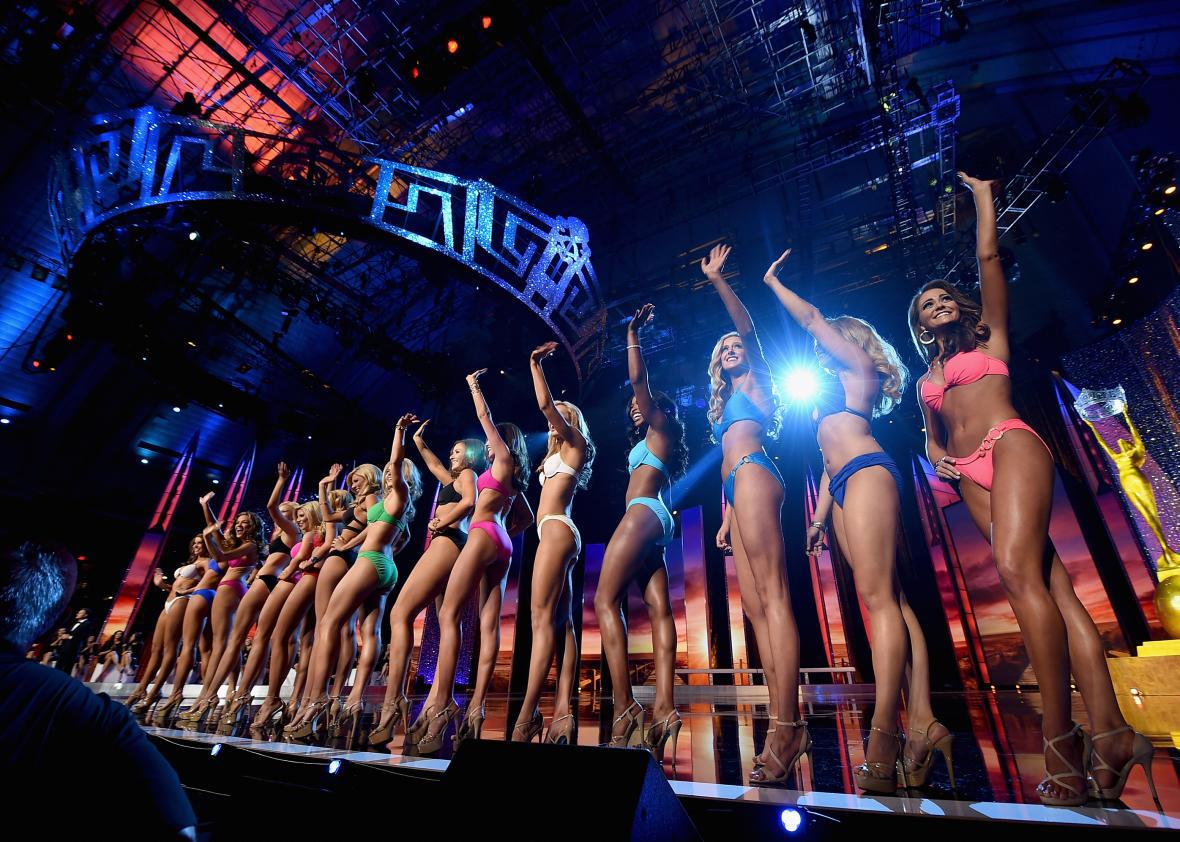At Sunday night’s Miss America pageant, the organization that chooses recipients of its paltry scholarships by judging their adherence to conventional beauty standards earned points by giving 1983 winner Vanessa Williams—who was forced to resign over a nude photo scandal—a long-overdue public apology.
The pageant showed some promising evolution on the talent front, too. Both Kelley Johnson and Alayna Westcom (Miss Colorado and Miss Vermont, respectively) eschewed traditional song-and-dance routines for acts that put their STEM careers in the spotlight.
Dressed in a stethoscope and purple scrubs—perhaps the most comfortable outfit ever to cross the Miss America stage—Johnson, a nurse, told the story of an Alzheimer’s patient who helped her recognize her important role in the hospital ecosystem.
“You’re not a room number and a diagnosis when you’re in the hospital—you’re a person … and Joe reminded me that day that I’m a lifesaver,” she said. “I’m never going to be just a nurse.”
Westcom, an autopsy technician and scientist in a medical laboratory, demonstrated the showboating “Elephant’s Toothpaste” experiment, which combines hydrogen peroxide and potassium iodide to create an exploding fountain of foam. “Whether you’re taking a breath of fresh air, dancing like you just don’t care, or even perfecting your hair,” Westcom riffed, “science is there.”
Historically, the vast majority of Miss America contestants have chosen musical numbers for their talent segment; this year, 22 of the women danced, 21 sang, and seven gave instrumental performances. (Two of the singers played their own instruments, too.) Sandwiched alongside a swimsuit parade and a stilted question-and-answer session, the acts can feel more like forced, sing-for-your-supper transactional entertainment than a sincere expression of the contestants’ abilities and interests.
Outside of the Miss America pageant, far more women express their hard-earned skills in everyday work than in talents naturally suited for the stage. A Grey’s Anatomy–lite monologue and a few foaming beakers wouldn’t cut it at a TED conference, but for a beauty contest deeply rooted in retro gender politics, they’re a welcome step toward reality.
